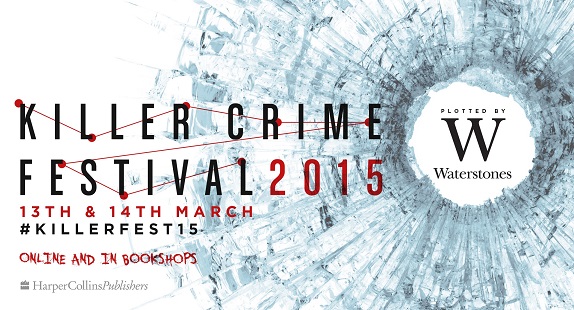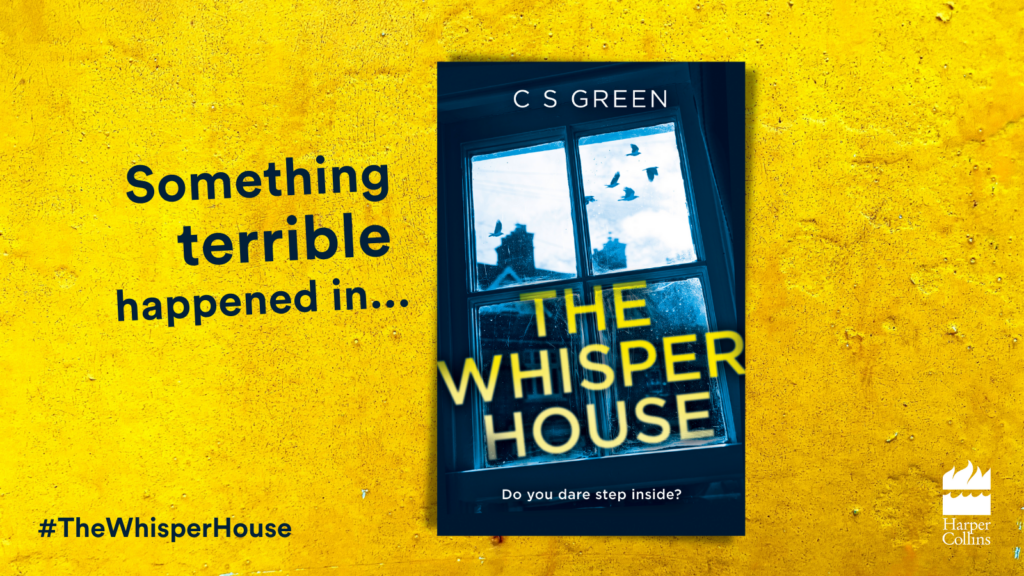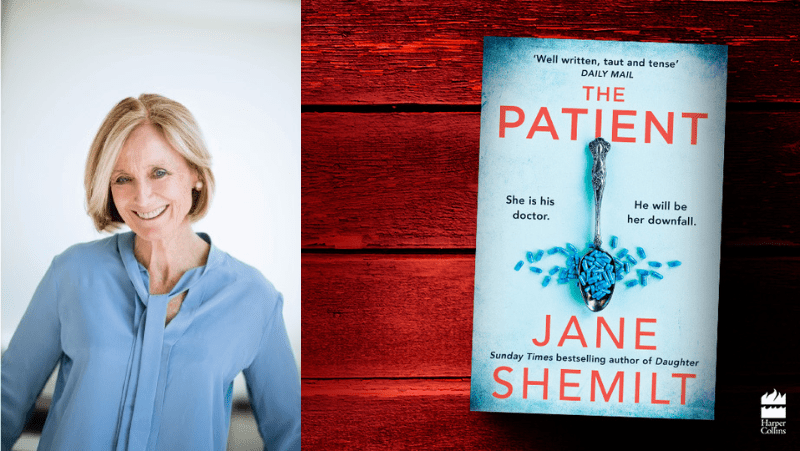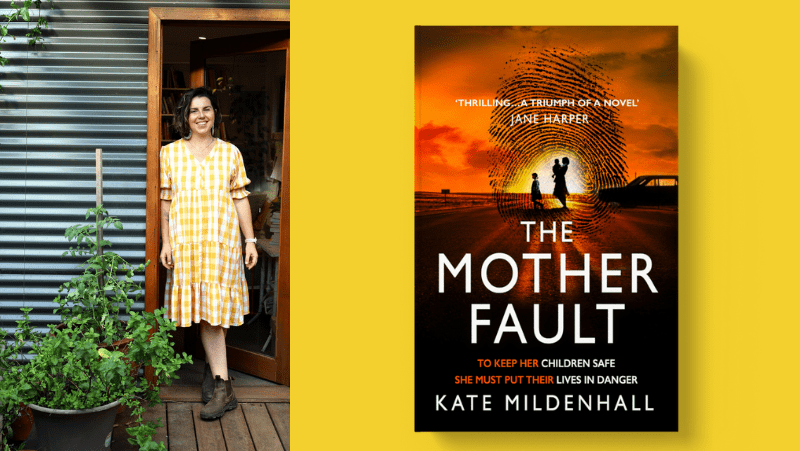Your name: Paul Finch
Tell us about yourself: I’m a former police officer and journalist, who turned to writing in the early 1990s, initially script-writing; my professional credits include THE BILL and DR WHO. But I moved into novel-writing in the mid-2000s, initially with a couple of horror novels, but finally returning to my first love, crime fiction, in 2012 with the first of my DS Mark Heckenburg novels, STALKERS.
Tell us about your latest book: My latest, which will be published in May this year, is called HUNTED. It is the fifth in the Heckenburg (or Heck, as he is known) series. This one takes us down to Surrey, where Heck – who is attached to the Serial Crimes Unit of the National Crime Group (based at Scotland Yard) finds himself investigating a succession of elaborate and bizarre fatal accidents – two car thieves bitten to death by poisonous spiders for example, a company rep impaled on a length of scaffolding. There is absolutely no evidence that these catastrophic incidents are the result of foul play, but Heck has a nose for these things. Evidence or not, he is soon on the trail of a truly weird killer …
When did you start writing? I suppose when I was at school. I loved English lessons, particularly creative writing classes. I thoroughly enjoyed homework assignments that involved writing stories. That continued sporadically throughout my life. As a copper, there wasn’t much opportunity for it, but when I entered journalism I began to earn money from my ability to put words on the page, and that gave me a real taste for it. In addition to my journalistic work, I started penning short stories – mostly thrillers and horrors – and saw them published in magazines and anthologies. I realised I had a potential parallel career, but it was only when I bit the bullet and submitted speculative scripts to THE BILL, and subsequently found myself in the capable hands of what was then the best script department in British television, that I really began to hone myself as a professional author.
Where do you write? It depends on my mood, and I’m not being facetious in saying that. I have my office at home in our spare bedroom, which is where a lot of the work gets done, but I also like to dictate my first drafts onto a hand-recorder, usually during the course of very long walks in the countryside with our two spaniels. There are occasions too when I take my laptop to my wife’s office up the road and spend a day or so in the company of my soul-mate, working quietly at the end of her desk. On the surface, this may look like a disorganised programme, but I can’t stand being parked on my backside in front of the same computer screen all day every day. The other good thing is that it breaks the Monday-Friday nine-til-five routine. I work evenings and weekends too. I don’t mind as I never feel that I’m in ‘the work environment’ if that makes sense.
Which other authors do you admire? The list could go on indefinitely. It genuinely could. I suppose it depends which genre you’re talking about. In terms of crime, my current favourites are Peter James, Stuart MacBride and Simon Kernick. But I also read a lot of horror, and in that regard you can’t beat the likes of Adam Nevill, Reggie Oliver, Alison Littlewood and Ramsey Campbell.
Book you wished you’d written? The irony here is that my favourite novel ever, bar none, is neither a thriller nor a horror. I also enjoy historical fiction, particularly if there are action elements. I’m not a big fan of romance, but there is lots of that too in THE SAXON TAPESTRY by Sile Rice (1992), which fictionalises the resistance to the Norman invasion of England by Hereward the Wake. It’s possibly the most epic tale that has never yet been told on film, and in this version is so beautifully written that it takes your breath away. It’s also heartbreakingly sad. It’s an enormous tome, but it was so compelling that I read it in something like two sittings. It gets my highest recommendation.
Greatest fictional criminal: The one who most caught my imagination was Auric Goldfinger, who first appeared in the Bond canon in the 1959 novel. Partly this was because it was the first Bond novel I read, but also because he was so vividly described. I seem to recall he was something like five feet tall, with bright red hair and a fierce blue gaze. He was also a crack-shot with a pistol and was in the habit of shooting his victims through the right eye. On top of that, he used to paint his girlfriends gold so that he was literally making love to gold. All of this seemed so wonderfully twisted and theatrical to me that it made a massive impact. Add to that the most audacious robbery scheme in history – the attack on Fort Knox, and you have a fantastically memorable villain, whose reputation was only enhanced by the later movie, at which point some of the more ludicrous aspects of the novel were fixed. For example, in the movie the attack on Fort Knox aimed to render the US gold reserve untouchable by use of a dirty bomb rather than steal it, which would have been a much more realistic ambition. But the famous scene with the lazer was only a marginal improvement; in the novel, Goldfinger was planning to cut Bond lengthways with a circular saw, which if anything would have been even more horrible.
Greatest crime or criminal from the real world: The advantage the previous question has over this one is that we can love fictional villains as well as loath them. It’s harder to be so relaxed when you’re contemplating real life evil-doers. Do we measure them by how much damage they have done to society, or by how much wealth they have illegally accumulated, or what? And where do you draw the line between commonplace criminals and, say, the world’s worst dictators, men who spend their entire lives terrorising, robbing, killing, etc? I suppose in terms of sheer audacity, Leonardo Notabartolo’s staggeringly well planned robbery of the Antwerp Diamond Centre in 2003 is the most eye-popping. Notabartolo was a professional thief, who with a team of only four accomplices, posed as a jewel merchant for several years while he staked out the Diamond Centre and its hugely complex, state-of-the-art security system, at the same time getting to know everyone who worked there intimately well, and even opening his own fake office next door. The heist was so successful that the gang eventually got away with $100 million’s worth of gems, most of which have never been recovered, though the perpetrators were later arrested. In terms of the world’s most frightening criminals, we fictional crime writers can’t even get close to creating the terror that some real criminals do. If the stats are to believed, three South American serial killers – Luis Garavito, Pedro Lopez and Daniel Barbosa – raped and killed 900 children between them during separate crime sprees in the 1980s and 1990s. What’s even more frightening is what happened to the killers afterwards. Barbosa was murdered in prison by a fellow inmate, but Garavito was sentenced to only 22 years, and Lopez has already been released and his whereabouts are unknown.
Greatest fictional detective: I don’t know about the greatest fictional detective, but the one that most influenced my own main detective, DS Mark Heckenburg, is DI Jack Regan from the classic TV series of the 1970s, THE SWEENEY. Like Heck, Regan is also a streetwise northerner based in London, whose private life is a mess and who is only good at one thing – coppering, but who is damn, damn good at it, etc. But I think the real reason DI Regan is my favourite fictional detective is because he’s the most like the best detectives I knew in real life. A hard, gritty character who isn’t a super sleuth in the Holmes style, but knows his job inside out, is fearless at its enforcement, and at the same time seems to occupy a twilight zone between the law and the law-breakers, often ignoring the little fish in order to go after the big ones. After years of watching idealistic TV shows like DIXON OF DOCK GREEN, the original Jack Regan vehicle, REGAN (part of the ARMCHAIR CINEMA series of 1974, a year before THE SWEENEY was made) was pacier, more uncompromising and in some ways more morally ambiguous, and yet very in keeping with the big city policing I would shortly afterwards become a part of. Though he appeared in screen drama long before he appeared in novel adaptations, DI Regan was a landmark character in the development of fictional detectives.
What scares you? I think the state of the world in general. Maybe that’s a clichéd answer, but at present I think we who regard ourselves as civilised human beings are facing threats as never before. And these aren’t vague, intangible threats. They are very real and are increasingly in our face, though possibly that’s because social media ensures that every new and grisly development is beamed into our front rooms. I wouldn’t say I lose sleep over this, not yet … but I do worry.
Are you ever disturbed by your own imagination? I often suffer nightmares, and have done ever since I was a child. When I was very young, my mum took me to a doctor because of this, and he said it was down to my vivid imagination. That may be true, I don’t know … it may also be down to my preferred reading and watching material, which is almost always of a dark and frightening ilk. Either way, it’s worked for me. Several times I’ve been inspired by dreams to develop new, disturbing ideas for stories or books. So, to answer your question, my imagination may disturb me but I wouldn’t have it any other way.
3 crime books you would recommend to EVERYONE: Three benchmark crime novels I’d recommend to anyone are JACK RETURNS HOME by Ted Lewis (1970), concerning the return north of a low-level London gangster determined to investigate the death of his brother. Most folk today will recognise it from the movie version, GET CARTER. Maurice Procter’s HELL IS A CITY (1954) is one of the ultimate police procedurals, and pits the veteran DCI Harry Martineau against an old lag who has broken out of jail to do one last job. My last choice is a bit of a cheat, as it combines both the crime and horror genres. THE WOLFEN by Whitley Strieber (1978) tells the story of two precinct detectives, a male and a female, investigating the brutal cannibalisation murders of homeless people in Harlem and the Bronx, and gradually, despite their better judgement, starting to suspect they are on the trail of a werewolf pack. I urge those who don’t like horror not to give this one a miss for that reason. It’s a fabulous rendering of a protracted homicide enquiry in the most deprived depths of the city, and presents its hapless heroes, not to mention its readers, with the most terrifying opponents anyone is ever likely to encounter.
Do you listen to music when you write? At certain stages of the process: early stage development and final stage proofing. And before anyone asks, it tends to be hard rock or blues – something to get the blood pumping, but also something atmospheric of blue collar folk struggling valiantly against the difficulties of modern urban life. However, I also have a thriller play-list comprising some of the best and most atmospheric overtures and incidental music from crime cinema. Some writers I know are are astounded by this; they say it would distract them terribly, but for me it’s inspirational.
Are you on social media? Yes, I’m on Facebook, but I can also be followed on Twitter as @paulfinchauthor, and have my own regularly updated blog: http://paulfinch-writer.blogspot.co.uk/. A new dedicated Heck website will be available for perusal shortly.
How can fans connect with you? Via any of the above, or simply by introducing themselves at crime writing conventions. I’ll be at Bristol and Harrogate later this year.



